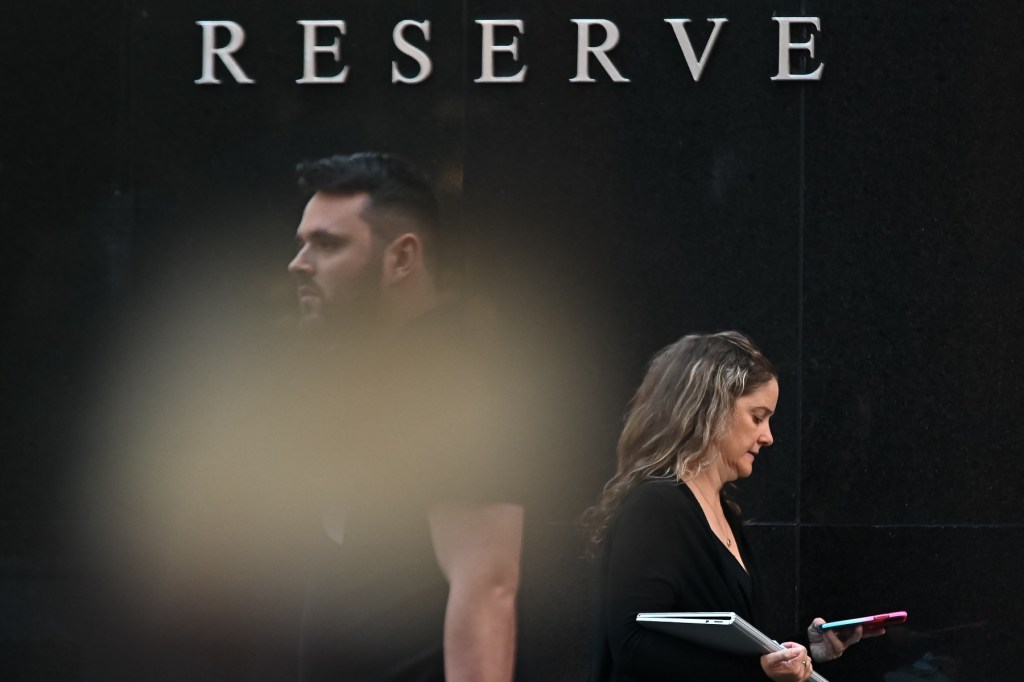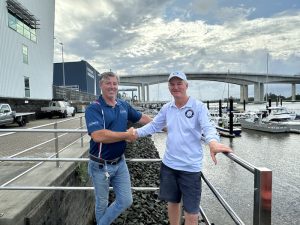International student cap draws fury from top universities

- by Admin
- August 27, 2024
The federal government’s plan to cap international student numbers has split the tertiary education sector, drawing uproar from prestigious urban universities but cautious optimism from their regional and suburban competitors.
Education Minister Jason Clare on Tuesday proposed a limit of 270,000 new international enrolments in 2025, covering both universities and VET providers.
Government figures suggest that is close to the pre-pandemic norm, but about 20 per cent lower than the peaks seen in recent years.
While Mr Clare did not reveal how the total cap would be split among individual institutions, he did indicate smaller universities would benefit at the expense of larger universities.
“This is about setting the system up in a better and a fairer way. So, it’s not just a lucky few universities that benefit from international education, but it’s the whole sector,” he said.
Those comments met a furious response from the Group of Eight (Go8), a collection of some of Australia’s largest universities.
Go8 chief executive Vicki Thomson said it was “an insult” to say those universities were “lucky” to have high international student numbers.
“[Go8 members] do the heavy lifting in research, education as well as underpinning Australia’s global reputation as a high-quality international education provider,” she said.
“Unfortunately, with today’s announcement it seems that this ‘luck’ has run out.”
Foot off the brake for smaller universities
But the move was welcomed by smaller universities, who stand to get more students under the cap system than they had under the makeshift student “speed limit” the government imposed for the current academic year.
Under that policy, known as Ministerial Direction 107, immigration officials must prioritise the visa applications of students from institutions with low rates of visa rejections.
Mr Clare acknowledged last week that had favoured sandstone universities over suburban and regional universities, and on Tuesday La Trobe University and the University of Wollongong were among those pleased to see it replaced with a cap system.
“La Trobe has been disproportionately impacted by the student visa processing arrangements stemming from Ministerial Direction 107,” the university’s vice-chancellor, Theo Farrell, said.
“La Trobe welcomes the certainty provided today … [and] supports transparent and proportionate measures to ensure the managed and sustainable growth of international students in Australia.
“We recognise that there is broad political and community support to reduce net migration levels.”
Education Minister Jason Clare says the caps will see a “fairer” distribution of international students. (ABC News: David Sciasci)
John Dewar, interim vice-chancellor at the University of Wollongong (UOW), said the announcement provided “greater certainty, clarity and transparency”.
“We welcome [the] recognition that the current approach of managing student visa numbers by Ministerial Direction 107 is having a profound and unfair impact on regional universities like UOW.
“Its removal and replacement with the government’s proposed system is fairer and more sustainable.”
Sandstone universities warn of crumbling global reputation
Australia’s largest universities enjoyed faster visa processing times under the speed limit system, and many saw their international student numbers increase.
But Ms Thomson said while the Go8 acknowledged the system had created uncertainty among prospective students, it was “a clumsy sleight of hand” to suggest the caps were a solution.
“The government has essentially responded to one reckless policy folly, Ministerial Direction 107, with another — punishing the universities that have proven to be the most popular for the very best global students,” she said.
University of Melbourne vice-chancellor Duncan Maskell said his university was “strongly opposed” to a cap.
“It is staggering that we continue to have this debate while there is apparently no serious intent to address really major reform issues,” he said.
“The cap on international students will have detrimental consequences for our university, the higher education sector generally, and the nation for years to come … There will also be negative effects on the broader economy.”
The economic warning was echoed by business group ACCI, whose chief executive Andrew McKellar warned it would “stymie competition, crush many of the small Australian businesses that offer education services to international students, and damage Australia’s reputation as a welcoming education destination”.
“[It] won’t promote a stronger economy or help build a sustainable skills pipeline … [It is] a serious body blow to one of Australia’s most critical export industries,” he said.
Ms Thomson urged the Senate, which will need to pass legislation before the cap can take effect, to reject the bill.
“The Go8 encourages the Senate in the strongest possible terms to not allow the government to bully it into passing legislation,” she said.
Students faced with uncertainty
Any delay in the Senate would amplify uncertainty for prospective students unsure whether they will be able to commence their studies in Australia in the new year.
That uncertainty has also spread among students already here. Avery Kong, an ANU student from Hong Kong who is not personally affected by the changes because she has commenced her study, said she and other international students felt “a bit less welcome”.
“They’re basically targeting us,” she told the ABC. “This change has made us feel a bit more stressed.”
Ngaire Bogemann, president of the National Union of Students, said the cap was “a slammed door in the face of hundreds of prospective students”.
“The some 741,000 international students in Australia are an important part of our diverse campus communities,” she said.
“Today, the federal government has essentially told them that they aren’t welcome here.”
Ms Thomson also warned students who could no longer access Go8 universities might not choose to study in regional universities just because the caps were higher.
“Students simply will not study where the Australian government tells them to,” she said.
Margaret Sheil, deputy chair of peak body Universities Australia and the vice-chancellor of the Queensland University of Technology, agreed that could frustrate the government’s plans.
“We know that international students don’t choose a country, they choose a university and a course, and if they don’t get into that course, they’ll go to some other country potentially.”
The Latest News
-
December 25, 2024Gearing Up for Australian Open, Nick Kyrgios Elevated in Bold Predictions From Renowned Tennis Experts
-
December 25, 2024Dads’ day out! Australian stars unwind with with wives, kids at MCG. Watch | Cricket News – Times of India
-
December 25, 2024India must continue to exploit ‘brittle’ Australian line-up: Ravi Shastri | Cricket News – Times of India
-
December 25, 2024Warne, Tendulkar, Muralitharan and (even) Gladstone Small: Eleven Boxing Day Test memories
-
December 25, 2024Where to watch Chiefs vs. Steelers in Australia: Streams, TV channel, time for NFL Christmas game live and on demand | Sporting News Australia



